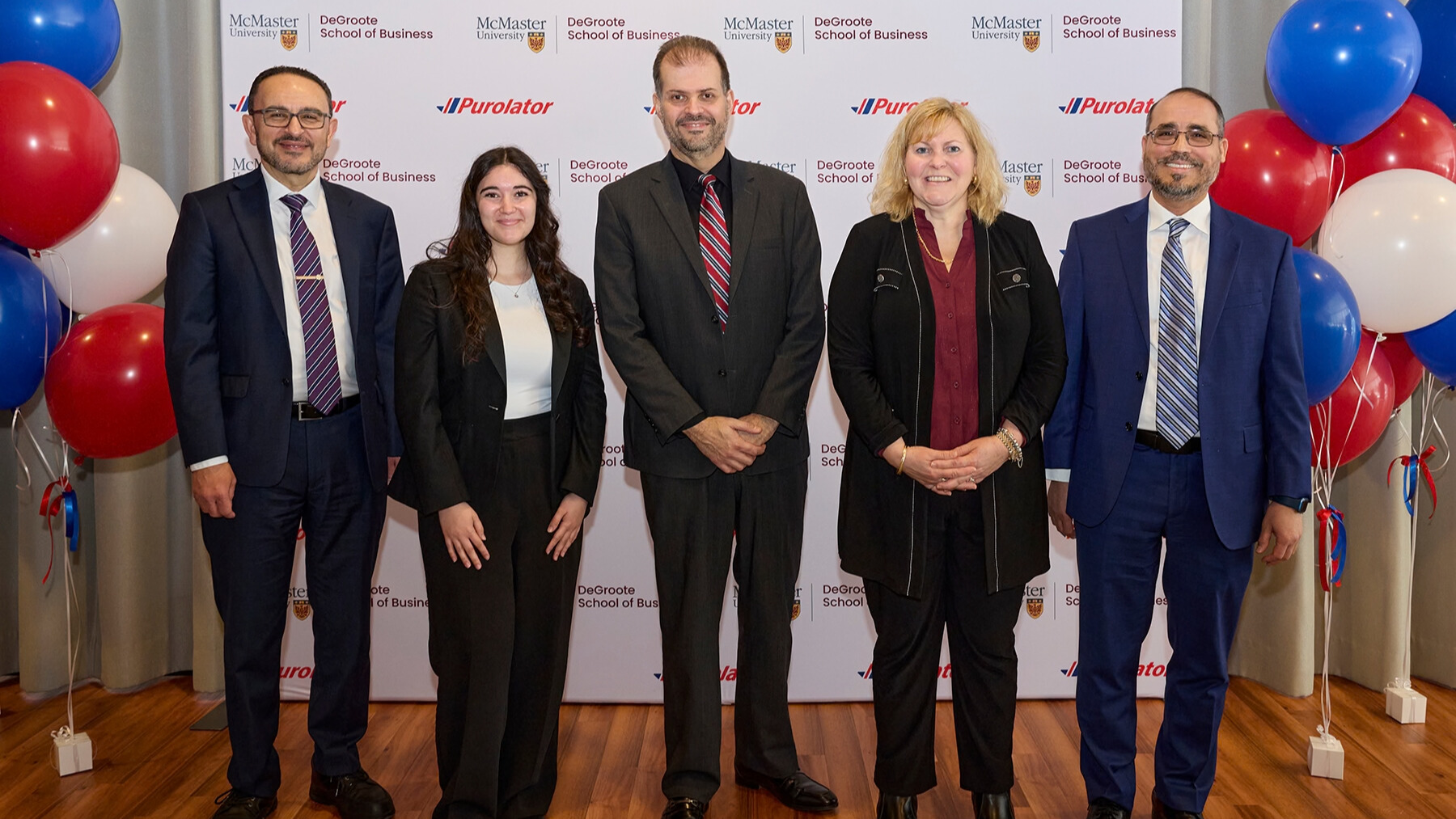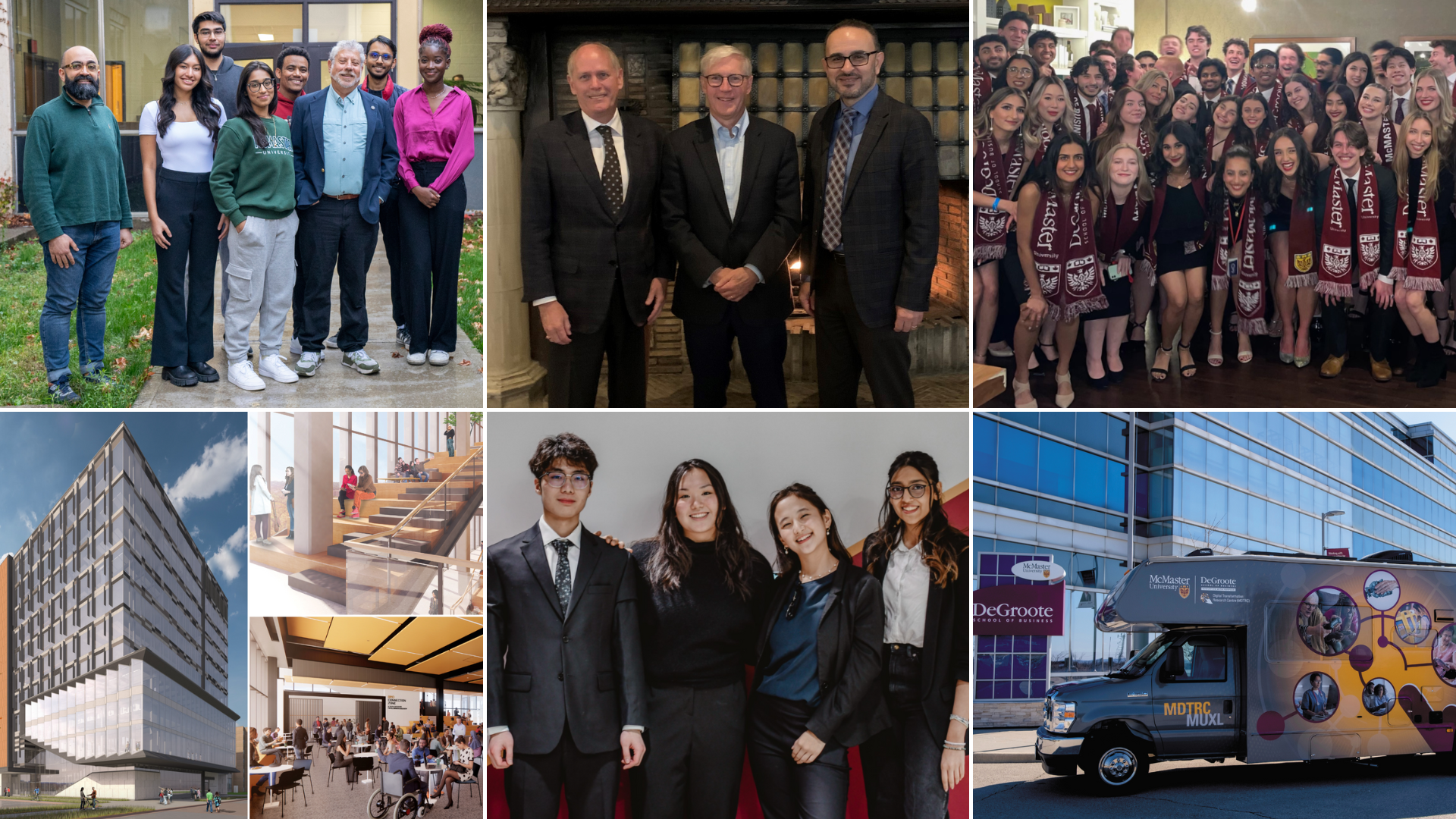OPERATIONS MANAGEMENT RESEARCH STAFF
Using big data to streamline big shipments: Smart Freight Centre launches in Region of Peel, with McMaster as partner
April 18, 2019 ·
Contributed by: Andrew Baulcomb, Communications Officer

Shipping goods has become easier and faster than ever, but how will Canada’s densest communities deal with the increased strain on existing infrastructure? That’s one of the main challenges the new Smart Freight Centre will look to address. DeGroote’s Elkafi Hassini, Professor, Operations Management, will play a vital role at the Centre.
Senior government and academic officials gathered Thursday at Brampton’s Embassy Grand Convention Centre for the launch of the Smart Freight Centre.
The Centre is being touted as a one stop shop for addressing some of the most pressing transportation and logistics issues facing Canada’s busiest commercial and residential hub. For example: How do municipalities deal with increased traffic as online shopping necessitates more delivery vehicles?
Partners include the Region of Peel, McMaster University, University of Toronto, and York University. They’ll work together for the next five years to improve the quality of life and ongoing economic vibrancy in the Region of Peel and Greater Toronto and Hamilton Area (GTHA).
Evidence-based research will be at the forefront of the Centre’s efforts, as it strives to help coordinate transportation infrastructure, land development, regulations, technology tools, and resources.
It’s no small task. Trucking activity alone accounts for approximately $1.8 billion worth of goods moving daily to, from, and through the Region of Peel. The latter consists of Brampton, Mississauga, and Caledon, with a population of more than 1.3 million.
“Traditional business models continue to be disrupted. At the DeGroote School of Business, we see disruption as an opportunity to better prepare our students for the future of work,” said Len Waverman, Dean, DeGroote School of Business, who spoke at Thursday’s event.
“As we examine the future of business education, we will continue to seek out opportunities that improve the overall health and prosperity of Canadians,” Waverman continued. “The Smart Freight Centre represents one such opportunity. We’re pleased to support our partners as we work toward safer and more efficient goods movement across our communities.”
Projects that will commence during the first year of the Centre include an off-peak delivery pilot study; examining truck-friendly lane measures and strategies; and tracing the impact of online shopping on logistics operations.
Elkafi Hassini, Professor, Operations Management, DeGroote School of Business, is McMaster’s faculty lead on the initiative. Hassini specializes in data-driven optimization in supply chain management, and is Research Director of the Marketing and Supply Chain Analytics (MiSCAN) lab located at DeGroote’s Ron Joyce Centre in Burlington.
The Centre will also offer skills training in the fields of innovation and sustainability through the creation of up to three full-time research associate positions, three post-doctoral positions, and the recruitment of up to 20 graduate students.
The launch event featured addresses from MP Kamal Khera, Parliamentary Secretary to the Minister of International Development; and the Honorable Jeff Yurek, Minister of Transportation.
Remarks were also delivered by Nando Iannicca, Chair of the Region of Peel; Eric J. Miller, Director, University of Toronto Transportation Research Institute; and Rhonda Lenton, President, York University.
“As a key contributor to the GTHA’s vibrant economy, we recognize the importance of improving the movement of goods in order to maintain the transportation network’s efficiencies and safety, while supporting the quality of life within our communities,” said Iannicca.
“The Smart Freight Centre has been established to make recommendations through evidence-based research to address shared concerns. I am confident that together, we can work to ensure that our goods movement industry is sustainable, safe, competitive, and innovative,” he continued.
The Centre will ultimately evolve into a formal network between government, academic, and industry partners that work on goods movement issues of regional significance. In other words, problems that affect more than one municipality, cannot be examined in isolation, and require long-term solutions.
The Centre is currently seeking government and industry partner contributions to further its research efforts. To learn more, click here.















